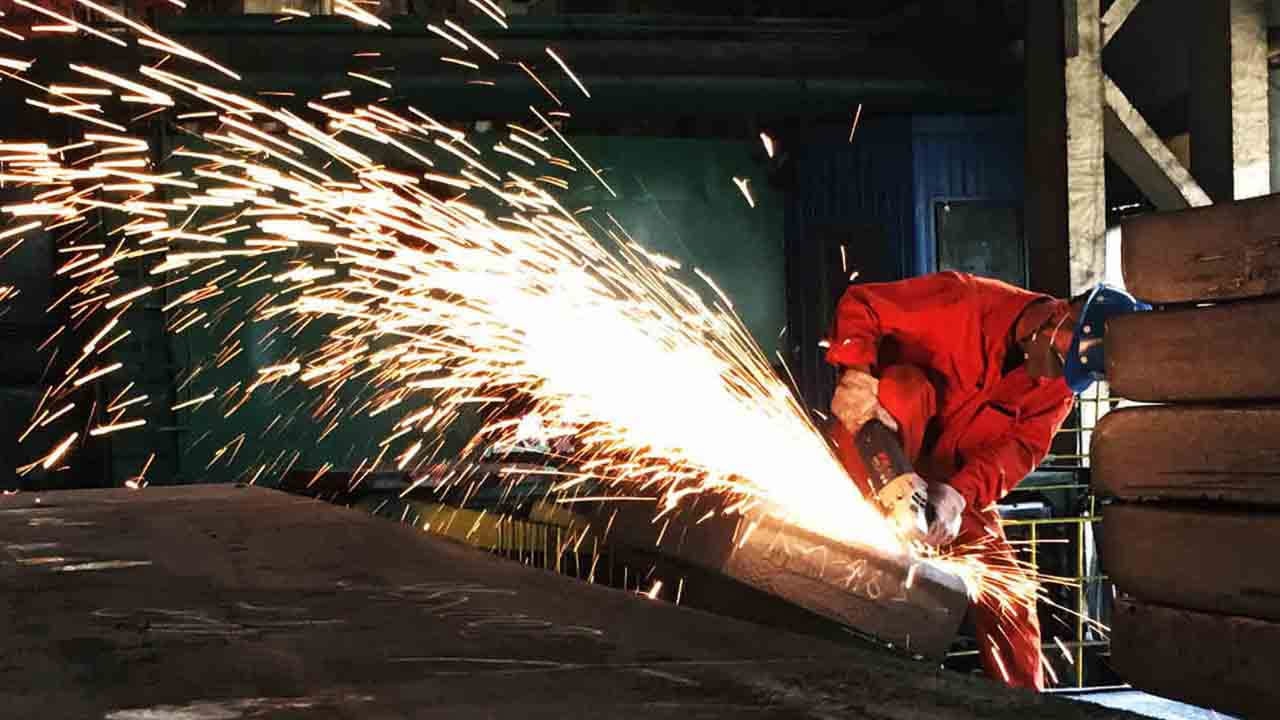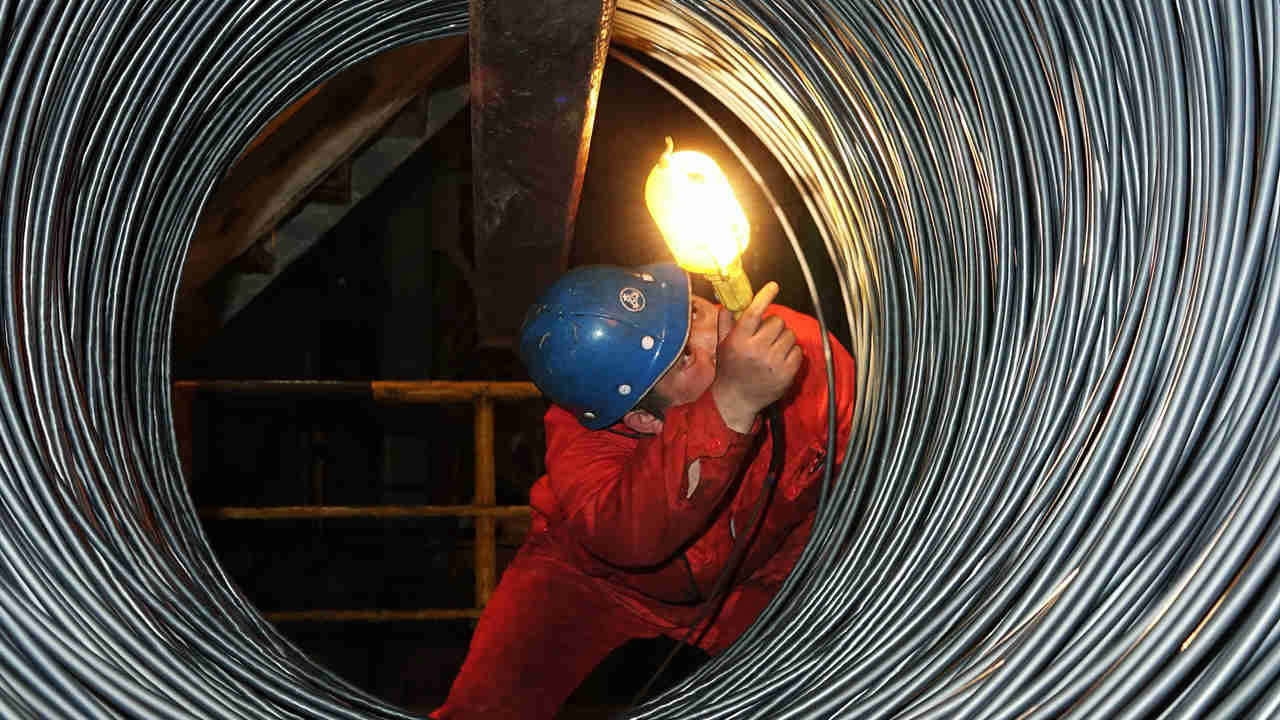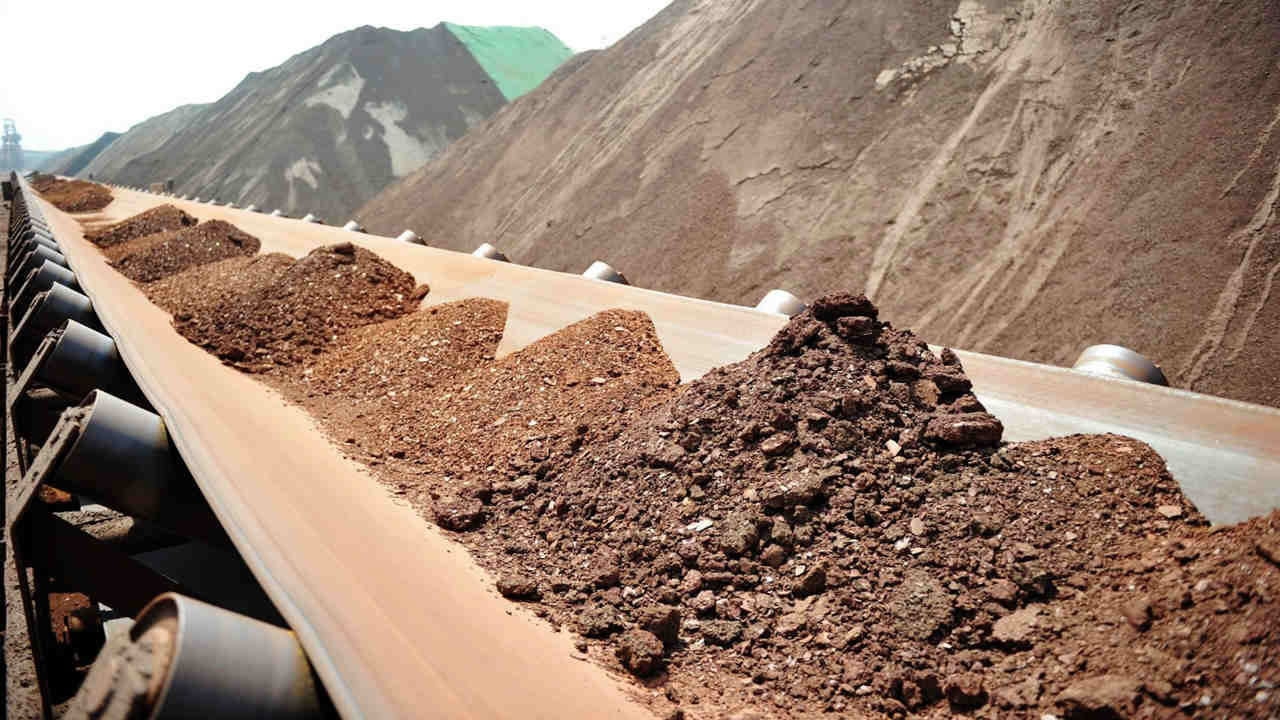China's PPI up 6.4 pct in April but below expectations
2017-05-10 17:32 GMT+8

Editor
Zhang Ruijun
By CGTN’s Yan Yunli
China's producer price inflation cooled more than expected in April as iron ore and coal prices tumbled further. Experts said that was due to fears that domestic demand would not be strong enough to absorb surging supplies of steel.

A worker is checking the surface quality of Alloy Steel in Dalian, Liaoning Province, May 1, 2017. /VCG Photo
The producer price index (PPI) rose 6.4 percent from a year earlier, less than expectations for a 6.9 percent rise and easing further from March's 7.6 percent. It was the first monthly drop since last June. The key reason was broad-based declines in production material prices.
"The nine major production material prices including coal, steel and oil dropped significantly, so the PPI slipped year-on-year," said Wang Jinbin, assistant dean from Renmin University.
A renaissance in China's steel industry has been a major driver of the world's second-largest economy in recent quarters, helping generate the strongest profit growth in years and adding to a reflationary pulse across the global manufacturing sector.
But iron ore and steel futures tanked in April over concerns of rising inventories. Meanwhile, the unsatisfied commodity prices and weak demands intensified the PPI drop.

Iron ore is carried by belt conveyor in Qingdao, Shandong Province, April 11, 2017. /VCG Photo
"The commodity prices have been in a low position, and the demand is not so strong, so the prices will definitely drop," Wang said.
The soft data, combined with slightly slower growth in manufacturing activity, reinforces analysts' views that China's economic expansion remains solid but is starting to moderate after a surprisingly strong start to the year.
Copyright © 2017
